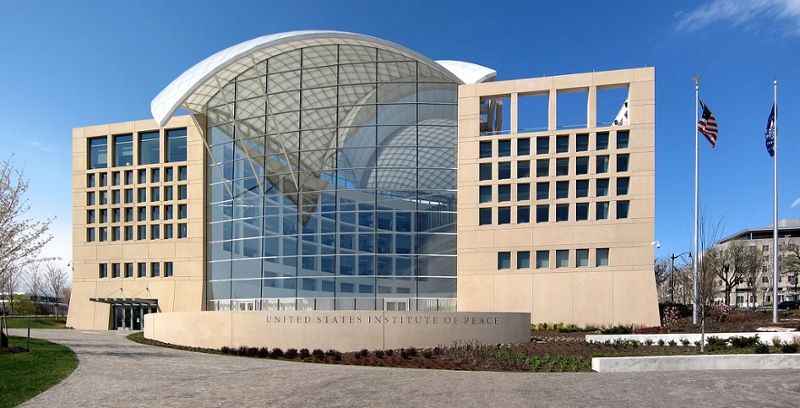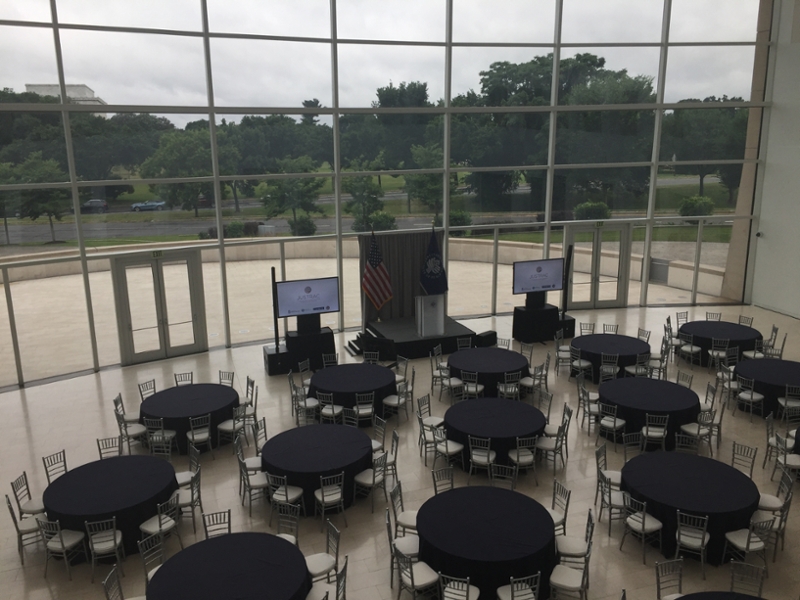Week 4 - Asset Forfeiture, House Resolutions, and a Rule of Law Symposium
Moving into my fourth week at NCSC, I picked up several new assignments. First, I was charged with researching civil and criminal asset forfeiture in the United States. The goal of the project was to look at the current state of this issue and determine where it would go in the future. This research, depending on the results, would be used to develop a joint exercise between NCSC and Egyptian law students. In Egypt, the government continues to use asset forfeiture as a weapon for their counter-terrorism initiatives but regularly abuse this practice to the detriment of innocent families across the country. The government of Egypt will typically accuse an individual of a terrorism-related charge then move in and seize all their financial assets and the assets of their family as well. This practice leaves families out in the wind without anything to latch onto and many never recover. This project seeks to compare how the practice of asset forfeiture works in the U.S., which experiences many of the same problems, and then analyze what steps, if any, the United States has taken to resolve these same problems. The issue of asset forfeiture and the possibility of a joint exercise with Egyptian law students came about because of recent moves by the U.S. Supreme Court. The main case was Honeycutt v. United States which was decided in 2017. Honeycutt laid down a unanimous decision that seemed to signal that the Supreme Court might be rethinking its stance of asset forfeiture as it applies to innocent owners and non-owners alike. If true, this would mark a major change and step in overcoming the typically large obstacles that surround the topic of asset forfeiture. Overall, this is why the potential collaboration with Egyptian law students provides such an interesting opportunity.
In addition to working on the asset forfeiture research, I also received an assignment from a judge that works with NCSC. He wanted Bryony and I to do some research on a new House Resolution that sought to place limits on contingency fees for lawyers. The assignment was to research the laws of each state to find similar legislation and to write a summary of that research to be circulated. After finishing this task, it turns out that twenty-nine states place some limitations on attorney contingent fees, some that mirror the House Resolution and some that drastically differ from that resolution. This was a great opportunity to branch out my research at NCSC and also learn about the policy ideas surrounding this topic. After finishing these two projects, I also received another assignment that would involve investigating cases of fraud and conflict of interest in rule of law project implementation and competitions. This assignment sought to find examples of legal troubles in the rule of law field to develop case briefers. These briefers will be used as training tools for NCSC’s projects around the world and for the offices in the United States as well. This was all part of an ongoing effort to ensure compliance and ethics within the organization which NCSC prides itself on.
Finally, before the week wrapped up and I headed back for a brief visit to Williamsburg for the weekend, Bryony and I went to a symposium held at the U.S. Institute of Peace. The symposium was entitled, “Lessons from the Field: Innovation in Rule of Law Programming” and was held by the Justice Sector Training, Research & Coordination Program (JUSTRAC). It was an all-day event and filled with interesting speakers that talked about their experiences in the rule of law field. The first panel discussed building political will to create a demand for justice reform which discussed the importance of bottom-up politics and implementation. The second panel talked about how organizations use creating interventions to overcome obstacles. Finally, the third panel focused on innovation in technology in rule of law reform. Each panel brought a unique perspective to the discussion and overall, I learned a lot about the challenges and work behind rule of law initiatives around the world. After wrapping up the symposium, I drove back to Williamsburg to check in on my cats and visit with some friends only to head back to D.C. on Sunday to prepare for whatever challenges and opportunities awaited me at NCSC the following week.

